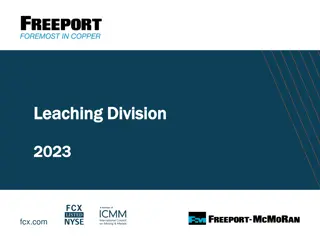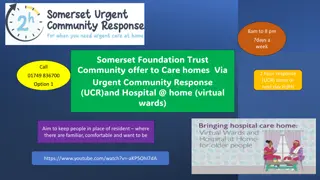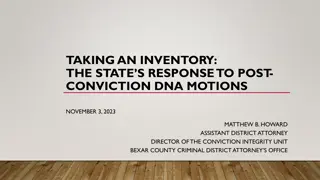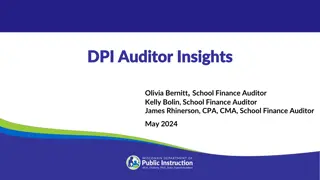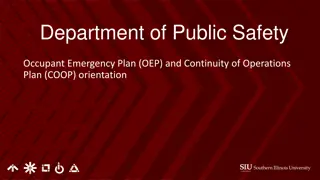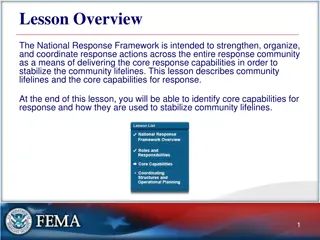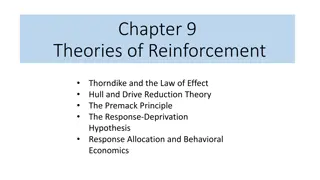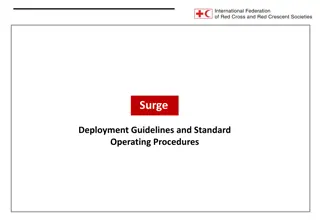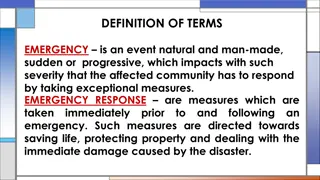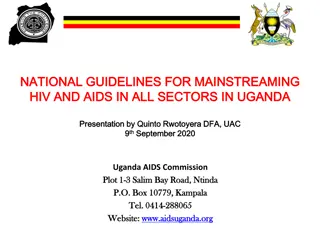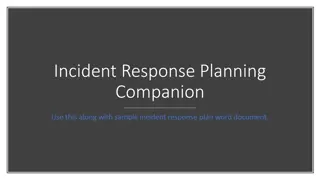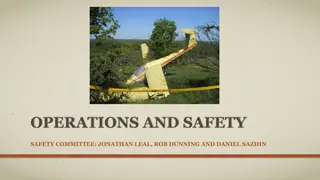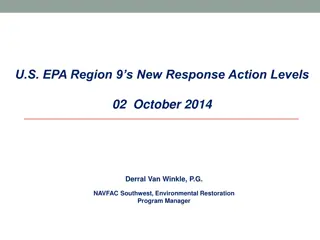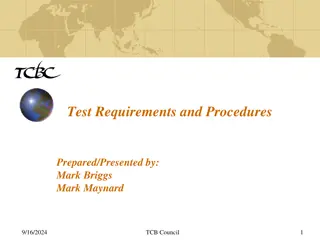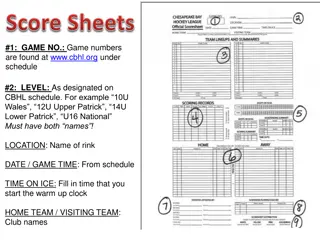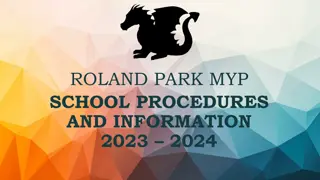Comprehensive Overview of RDO Response Guidelines and Procedures
This overview delves into the 2016 RDO Response Guidelines update, emphasizing uniform training to clarify RDO dual roles in managing day-to-day incidents and emergencies. It explores key tools and resources to aid RDOs in fulfilling their response responsibilities. Additionally, it covers relevant historical directives, executive orders, and the RDO role within Incident Command Systems, shedding light on their critical functions and authorities.
Download Presentation

Please find below an Image/Link to download the presentation.
The content on the website is provided AS IS for your information and personal use only. It may not be sold, licensed, or shared on other websites without obtaining consent from the author. Download presentation by click this link. If you encounter any issues during the download, it is possible that the publisher has removed the file from their server.
E N D
Presentation Transcript
Objectives History RDO Guidelines Overview Added expectations Expanded and clarified processes Training Appendix Scenarios 2
To introduce and distribute the 2016 RDO Response Guidelines update Provide uniform training that will clarify the RDO dual roles and response expectations involving day to day incidents and larger emergency events Identify tools and resources to assist the RDO in managing the dual roles and response expectations 3
Homeland Security Presidential Directives HSPD-5 National Incident Management System (NIMS) National Response Plan (NRP) HSPD-8 Integrated set of guidance, programs and processes 4
2005: WI Governor s Executive Orders 2006: Statewide Incident Notification Process (SINP) 2008: DOT Emergency Transportation Operation Plan 2012: DOT ETO Plan supplement 2016: Begin rewrite of the DOT ETO Plan 5
Version 2, 2016 Version 1, 2008 6
RDO role in ICS Incidents and Emergency Events Regional directors and managers On-call expectations RDO On-call 24/7/365 State Statute Authority Understand regional resource availability and allocation Statewide Incident Notification Process (SINP) Authority: To obtain additional resources To escalate incident to Emergency Event Administrator s Office Notification Coordinates internal unified command with DSP 7
Federal Version NCHRP Report 525, Volume 6, 2005 8
Wisconsin Centric Version RDO Dual Role 9
24/7, one week rotational basis (Including business hours) Schedule change responsibilities On-call RIMC supervisor Exceptions 10
Wisconsin Statute 84.07 (1b) Consideration for prevention of primary /secondary incidents Ensure health and safety of motoring public Prevent negative impacts to commerce Authorize without competitive bid Close affected section of highway or bridge 11
SINP History Backup Process Website 12
Expectations and Responsibilities: RDO responsibility to ensure the AO is notified The RDO shall call the STOC and confirm the AO has been contacted No notification to the STOC results in BTO on-call contacting the AO WisDOT Secretary s Office and DTSD Administrator s Office approved process July 3, 2014 13
RDO Roles in Emergency Event Response Escalation to Emergency Event Incident Commander (IC) or Unified Commander (UC) Operational Periods WisDOT Event Plans Emergency Event Briefings After Action Reviews (AAR) WI Emergency Support Team (WEST) NEW 14
Training Required Optional Resources: Standard resources ETO Resource Repository 15
RDO Timeline Resource Log Road Closure or Restrictions, Decision Tree 16
Pavement failure Touring bus Bridge railing strike County wide flood event 17
Scenario Unknown cause Mainline closure of Intersection ( STH STH ) LCS non priority routes Friday business hours Occurred in tourist area of state Estimated duration Major incident Longer than 2 hours 18
RIMC Contacts RDO Situational awareness Request to call in additional counties for assistance and equipment Media on scene asking for DOT interviews Duration of incident and impact to traveling public and tourist area 19
RDO Response Supervisory support for on-call RIMC Monitor incident for: Escalation to Emergency Event Possible Administrator s Office notification Provide incident situational awareness Authority in obtaining additional resources 20
Scenario Major incident, 2 NB lanes closed on 4 lane divided US Highway over a local creek LCS priority route 2 Fatal and multiple critical injuries Bridge railing destroyed Inclement weather Thursday at 1:00 am Special sports event (20,000 attendees) scheduled in nearby town on Friday Possible commuter traffic issues following morning 21
RIMC contacts RDO Situational Awareness and notification of Significant Incident Request to call in additional counties for assistance and equipment Need for DOT certified Bridge Engineer assessment and assistance in replacing bridge railing Advising media on scene Duration of incident and impact to traveling public and upcoming special sports event Communication and coordination between RIMC and RDO on emergency traffic management 22
RDO Response Supervisory support for on-call RIMC AO notification required Authority in obtaining additional resources Provides incident situational awareness Media coordination 23
Scenario Localized county flooding incident Unknown scope and severity Early morning hours State and local highways affected Estimated duration Major incident Longer than 2 hours 24
RIMC contacts RDO Situational Awareness and notification of Significant Incident Request for assistance: Counties for assistance and equipment DOT staff in traffic maintenance and bridge Advising media on scene Duration of incident and impact to traveling public and upcoming special sports event Communication and coordination between RIMC and RDO on emergency traffic management 25
RDO Response AO Notification Elevate to emergency event Establish internal regional ICS Coordinate with DSP Highway closure authority, if warranted Determine need for operational periods Determine staffing needs Prepare WisDOT Event Plan Conduct emergency event briefings Coordinate emergency event after-action reviews 26
QUESTIONS 27
Jack Keiffer, PE WisDOT NC Traffic Engineer 715-365-5771 (office) 715-401-4627 (mobile) John.keiffer@dot.wi.gov Connie Catterall Sr. Training & Facilitation Specialist 414-227-2156 (office) 414-702-5563 (mobile) connie.catterall@dot.wi.gov


